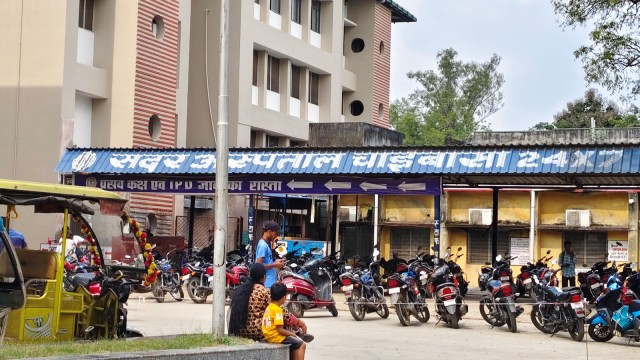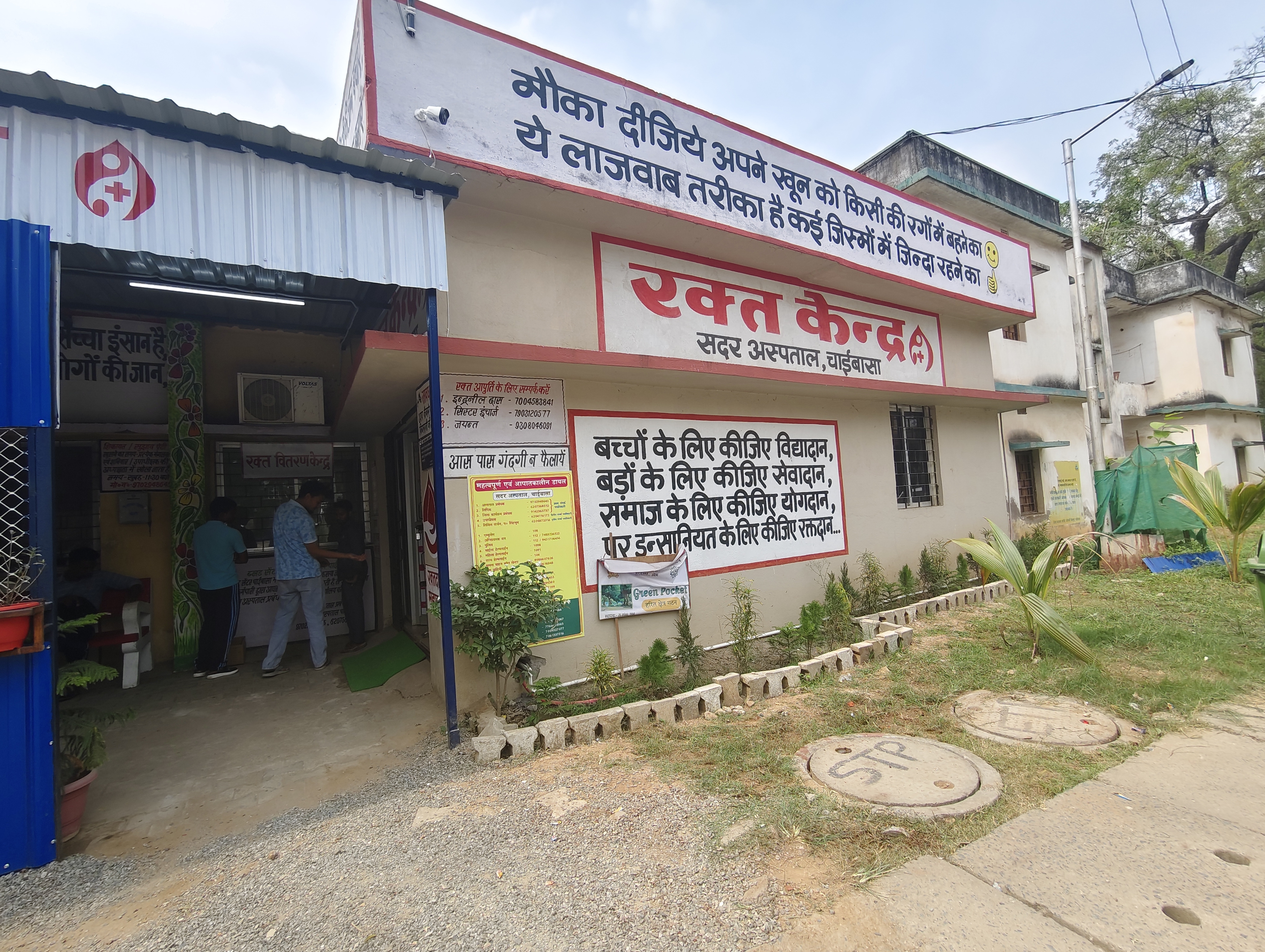When five children, who underwent blood transfusions after being affected by thalassemia, tested positive for HIV in Jharkhand’s West Singhbhum district earlier this month, the district blood bank at Sadar Hospital in Chaibasa began tracing 256 blood donors whose blood units were used over the last three years.
Health officials said the infections could have occurred from blood donated during the “window period” — the early phase after a donor contracts HIV but before it becomes detectable in standard tests.

According to officials at the district blood bank, blood collection happens daily from voluntary, replacement, and repeat donors, with roughly 45–50 units collected every day. Donation camps are held regularly by colleges, NGOs, and in industrial areas across the district.
Story continues below this ad
 The district hospital’s blood bank in Chaibasa (Photo: Shubham Tigga)
The district hospital’s blood bank in Chaibasa (Photo: Shubham Tigga)
The parents of the child who was the first of the five to test positive for HIV — on October 18 — said they had not taken him to any other hospital since he was diagnosed with thalassemia. His mother said, “We are already facing hardships due to poverty and can only depend on the government hospital. We have only one child, and we brought him there for treatment, but they seem to have plans to end his life.”
The father of another child said, “We have no history of treatment at other hospitals requiring injections. This is purely careless treatment of the poor.”
‘Window period’
Each donated blood unit undergoes tests for HIV. However, a health official in Chaibasa said, “There is a window period of about 10 days when antibodies are not yet developed in a newly infected person. If such a donor gives blood during this stage, the infection can go undetected and may be transmitted during transfusion.”
Story continues below this ad
The Sadar Hospital is the only blood bank in the district and has been functional since 2019. Earlier, thalassemia patients, who regularly get blood transfusions, depended on MGM Medical College in Jamshedpur district.
Currently, 56 thalassemia patients are registered at the Sadar Hospital, apart from around 14 others suffering from sickle-cell anaemia and hemolytic anaemia. “These patients receive blood transfusions frequently — sometimes two to three times a month. Some have received more than 60 transfusions over the past two years,” the official said.
All five HIV-positive children are under medical supervision and have been started on antiretroviral therapy (ART). Deputy Commissioner Chandan Kumar told The Indian Express that each family has been given Rs 2 lakh to help with their expenses.
Testing process
Donated blood undergoes mandatory tests for HIV, Hepatitis B, Hepatitis C, syphilis, and the malaria parasite using kits approved by the National AIDS Control Organisation (NACO). If any sample tests positive, the blood is discarded immediately and entered in a discard register with reasons for rejection.
Story continues below this ad
Moreover, officials said the blood undergoes three-tier testing for HIV: first a rapid test, followed by Enzyme-Linked Immunosorbent Assay (ELISA) for confirmation, and in specific cases, Nucleic Acid Test (NAT) at state or central laboratories for higher accuracy. “If HIV isn’t detected in the kit, it might still appear in ELISA or NAT,” an official explained.
Blood is stored under refrigerated conditions between 4°C and 6°C for a maximum of 35 days, though officials said it rarely stays that long because of high demand. Blood is issued to hospital wards based on cross-matching reports and requisition forms.
The district health team has now identified 256 donors from between 2023 and 2025, whose blood units were used for transfusions involving the infected children. The administration has prepared a block-wise list of these donors to be shared with the Medical Officers In Charge (MOICs) of the 15 health blocks. Each block will recall donors for repeat HIV testing, and the compiled results will be shared with state health authorities.
An official said that the district has also started identifying HIV-discarded blood units, i.e. units found HIV-positive and not used for transfusion. “In October alone, four HIV-discarded units were identified and more to be identified from previous months,” the official said.
Story continues below this ad
West Singhbhum district currently has 515 registered HIV patients, including migrant workers and those from other vulnerable groups, according to records of the Integrated Counselling and Testing Centre (ICTC). The ICTC is now handling the follow-up treatment for the affected children.
Other angles
According to officials, the hospital team looking into the matter is also reviewing the possibility of other ways in which the children could have been infected with HIV, including the reusing of syringes and any treatments that they could have received outside government facilities. However, most families have said that they have not gone to any other hospital.
Jharkhand Health Minister Irfan Ansari told The Indian Express that the matter is a sensitive one and accused the Opposition of politicising it. “We have already taken action against the Civil Surgeon and the other doctors involved. In the first case, the child in question underwent 32 transfusions over nearly one and a half years. We have tested the blood donors linked to those transfusions, and the reports have come back negative so far,” he said. Civil Surgeon Sushanto Majhee and two other doctors were suspended days after the children tested HIV-positive.
The minister said that within a month, after all the tests are done, “we will know for sure whether the infection originated from blood received at our hospital or elsewhere. We are being very careful about it.”
Story continues below this ad
Bharti Minz, who is now the in-charge Civil Surgeon, said an investigation team from the Centre has arrived to probe the matter and that the state health department is cooperating with it. However, the Health Minister said he had “no information about any such team’s visit”.



 The district hospital’s blood bank in Chaibasa (Photo: Shubham Tigga)
The district hospital’s blood bank in Chaibasa (Photo: Shubham Tigga)





